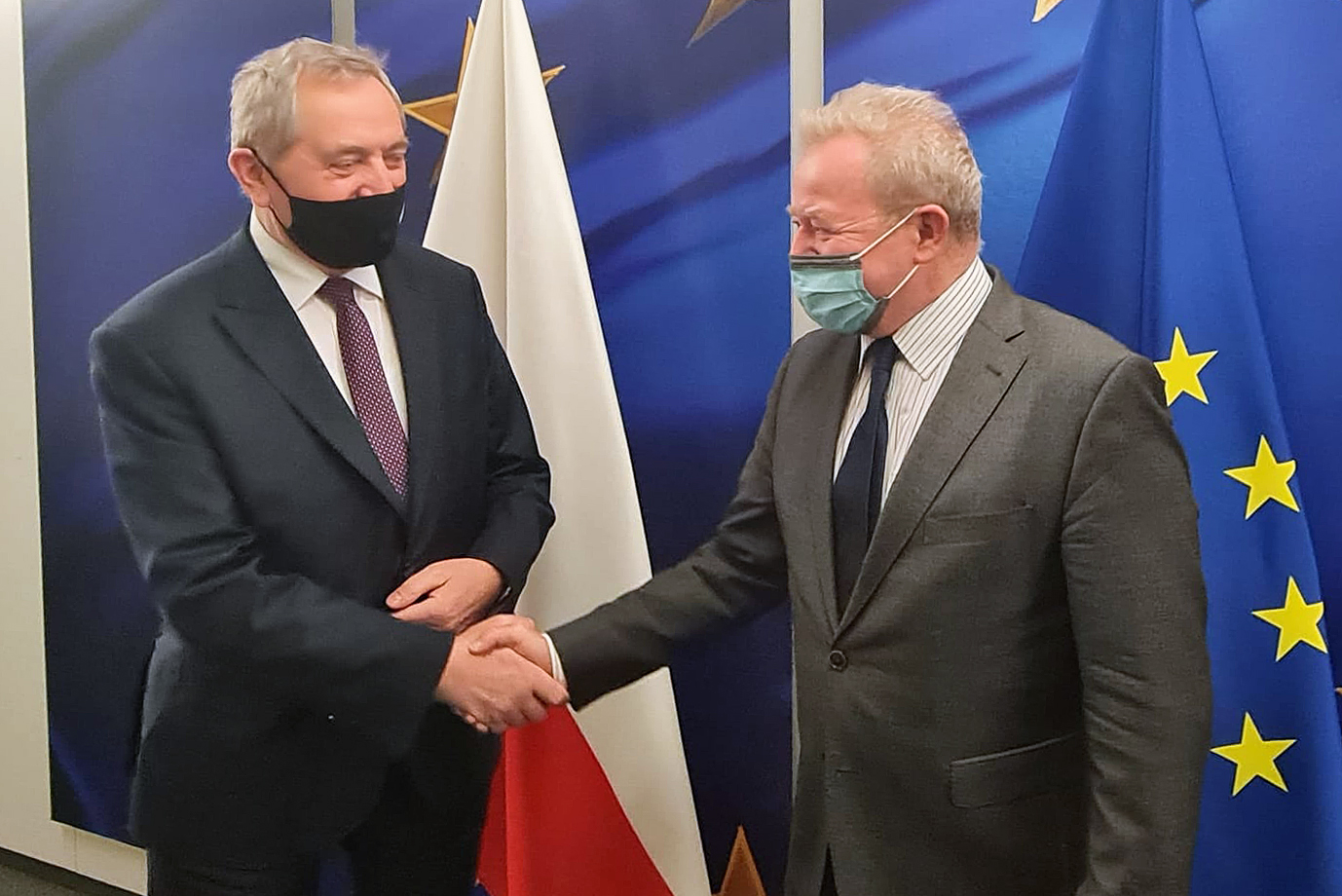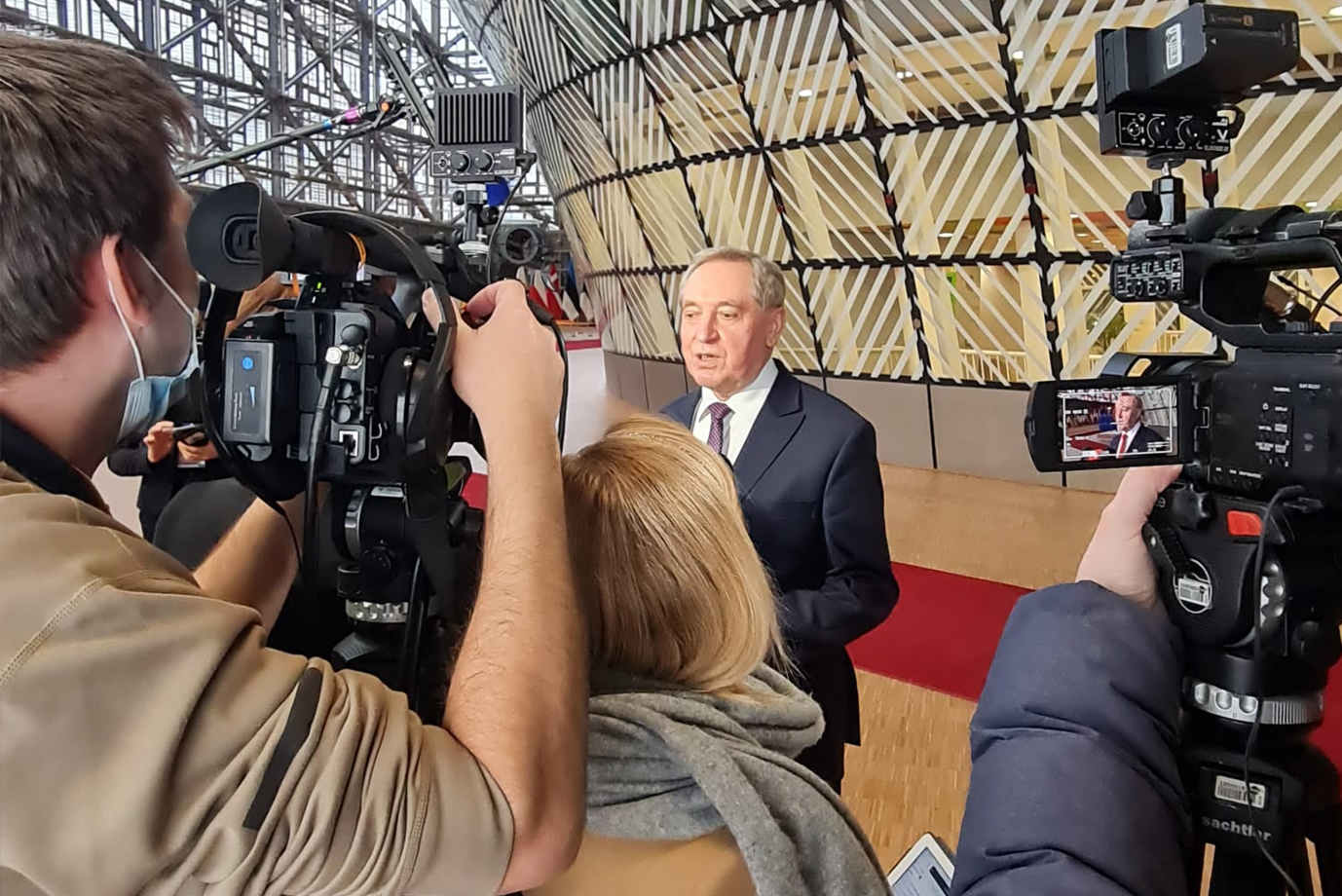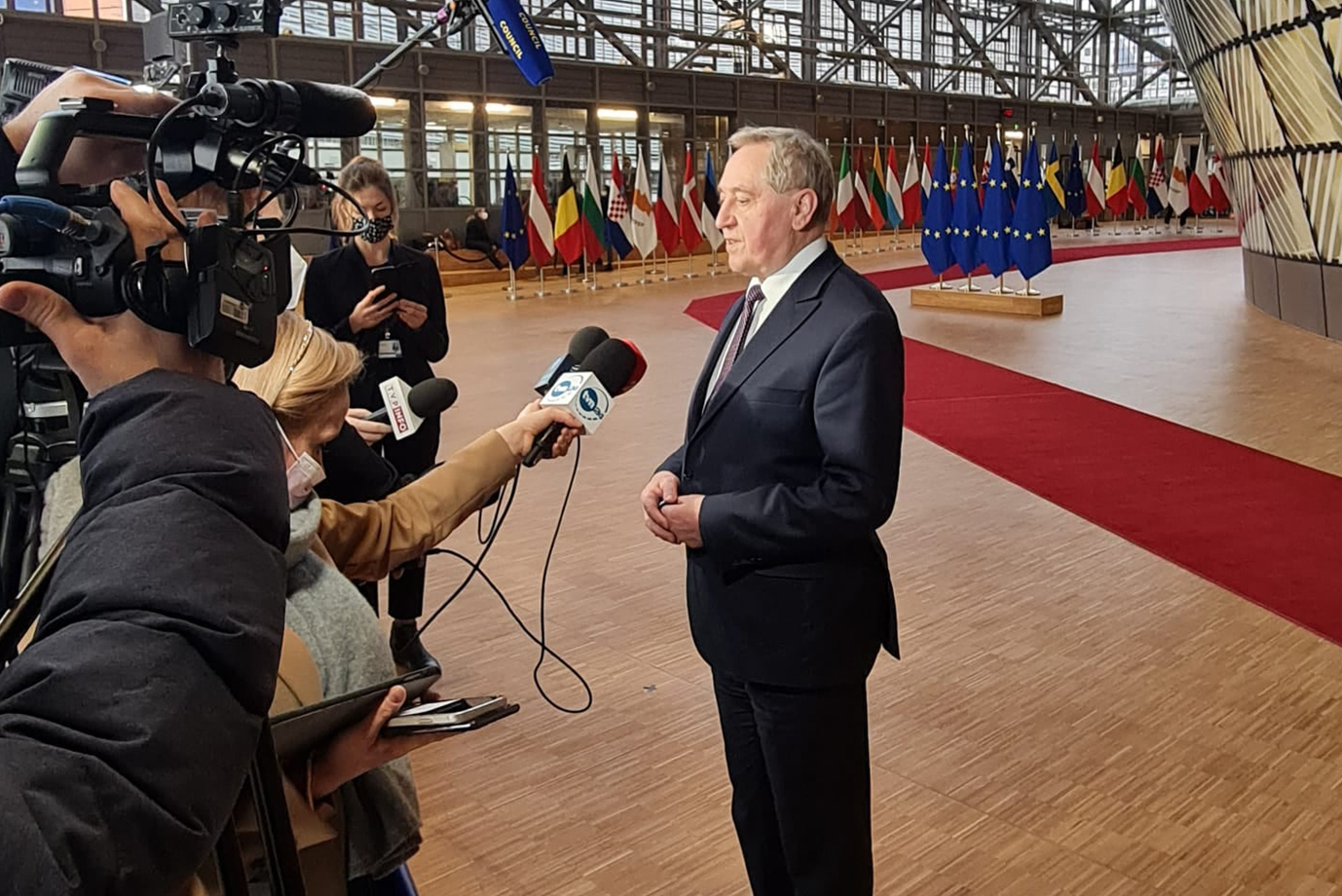AGRIFISH – on agricultural markets and promotion
22.02.2022
Mr. Henryk Kowalczyk, Deputy Prime Minister and Minister of Agriculture and Rural Development, participated in a meeting of the EU Agriculture and Fisheries Council in Brussels.

The most important topics of the February meeting of the Council included the situation on the agricultural markets and strengthening coherence between the Green Deal, the Common Agricultural Policy and trade policy.
The situation on the pig meat market
“The situation on the pig meat market is critical. Pig producers cease production. They are forced to take such a decision since for many months their production has not been profitable. It is mainly small and medium-sized farms which are unable to survive the present crisis that drop out of the market. The strong acceleration of concentration of production is inconsistent with the CAP objectives and the strategic goals indicated in the European Green Deal,“ Deputy Prime Minister Kowalczyk emphasised.
Poland called for the implementation, under Article 219 of Regulation (EU) 1308/2013 establishing a common organisation of the markets in agricultural products, of extraordinary aid for pig producers, to be awarded, in particular, to small and medium-sized farms.
The issue of fertiliser prices
At the same time, the head of the Polish Ministry of Agriculture pointed out an increase in the prices of inputs to agricultural production, including fertiliser prices, which poses an enormous problem for agricultural producers.
“In the opinion of Poland, the European Commission should take determined and specific measures to stabilise or compensate for high costs of inputs to agricultural production, including fertilisers, which would translate into stabilisation of food prices,” the Deputy Prime Minister said.
The apple market
In relation to the Belarusian embargo, the Polish Minister proposed that consideration should be given to the launch by the European Commission of an extraordinary mechanism for support in respect of apples, e.g. in the form of support for withdrawing the products from the market.
Other markets
He also informed about the problems on the starch potato and sugar beet markets.
The position of the EC
In most sectors, the situation is stable. The pig meat prices are now at last year’s level and piglet prices are slightly growing. In the assessment of the EC, the application of Article 219 of Regulation (EU) 1308/2013 is not an adequate aid measure, since it would have to be funded from the crisis reserve. The amount of the reserve (EUR 497 million) is small compared with the needs; moreover, its use would mean that the aid for the pig meat sector would in fact be financed by farmers.
In turn, Mr. Janusz Wojciechowski, the EU Commissioner for Agriculture, announced the appointment of an expert group, consisting of the representatives of Member States, and a social dialogue group, which would reflect on the condition of the sector, including, among others, the problems related to the excessive dependence of the sector on pig meat exports and soy and maize imports from third countries, as wells as the impacts of the increasingly large concentration of production and the impact of ASF on the sector.
The Commissioner also informed that on 2 March the Commission would present an updated communication on energy prices, also addressing their impact on agriculture. An increase in energy prices will also be the topic of the first meeting of the expert group under the European Food Security Crisis preparedness and response Mechanism (EFSCM).
Promotion policy – red meat and wine
On the motion of Poland and a large group of Member States (Austria, Belgium, Bulgaria, Hungary, Ireland, Italy. Lithuania, Latvia, Portugal and Spain), a discussion was also held on the issue of potential negative effects of the introduction by the European Commission of a review of the eligibility of products within the EU promotion policy, which could cause the exclusion of certain sectors, e.g. meat and wine, from support.
“In the opinion of Poland, it is justified to continue the EU promotion policy based on current provisions and with the assumption of adjusting operational priorities to objectives resulting from other policies of the European Union. The option which assumes a review of the eligibility, which may result in complete exclusion of certain sectors from support, raises firm opposition,” Deputy Prime Minister Kowalczyk said.
In the discussion, Poland’s motion was supported, in addition, by Croatia, Cyprus, Romania, Greece, Slovenia, Finland and Slovakia. It was only the Netherlands that firmly stated that it could not support the motion, arguing that the future promotion policy should focus on sustainably produced and healthy products, excluding meat products.
Commissioner Wojciechowski presented the objectives of the promotion policy and the ongoing process of its revision, including the options considered and the outcomes of public consultations. He explained that the Commission was currently completing the work on the impact assessment, which would accompany the legislative proposal, planned at the end of the 2nd quarter. Concluding on the debate, the French Presidency called on the EC to take into account the concerns expressed by most Member States during its review of the promotion policy.
Strengthening coherence between the Green Deal, the CAP and trade policy to support the transition towards sustainable food systems
The Ministers exchanged their views on the ways of strengthening coherence between agricultural and trade policies so as to better contribute to implementing the objectives of the European Green Deal.
Deputy Prime Minister Kowalczyk reminded that the European Green Deal posed many challenges in all the areas of policy and economy. He emphasised that care should be taken to prevent the achievement of these ambitious objectives from endangering food security and decreasing the competitiveness of European agriculture. Coherence needs to be strengthened between the ambitions of the European Green Deal and the related strategies, the Common Agricultural Policy and the Common Trade Policy.
“It is essential to ensure equivalent food law requirements for the food production in the territory of the European Union and the food which is imported into the European Union,” Deputy Prime Minister Kowalczyk said.
Commissioner Wojciechowski assured that work was underway to prepare the report on a legal assessment of the feasibility of applying EU health and environmental standards as well as production processes and methods to imported agri-food products. The work is planned to be completed in June of this year.
The meeting with the Commissioner for Agriculture
On the sidelines of the Council meeting, Mr. Henryk Kowalczyk, Deputy Prime Minister and Minister of Agriculture and Rural Development, met with Mr. Janusz Wojciechowski, the EU Commissioner for Agriculture. Their talks primarily concerned the Polish CAP Strategic Plan for 2023-2027 in the context of growing costs of agricultural production and possible measures to mitigate their adverse impacts for farmers.



